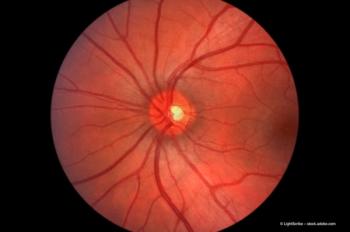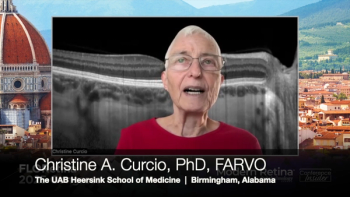
Avastin to be reimbursed by the Italian authorities
Decision to reimburse Avastin in Italy sparks controversy.
On May 28, 2007, the Italian health authorities issued a decision, which sparked immense controversy and roused mixed emotions amongst retina specialists in Italy and, indeed, throughout Europe. The Italian Pharmaceutical Agency (AIFA) announced the reimbursement of bevacizumab (Avastin) for the treatment of exudative maculopathy and neovascular glaucoma. As such, the agent, which has not been approved for this indication, would be fully reimbursed for use in Italian patients.
The decision is particularly controversial because two agents - pegaptanib (Macugen; Pfizer) and ranibizumab (Lucentis; Novartis) - which have a similar mode of action and have been subjected to rigorous, controlled clinical trials for neovascular age-related macular degeneration (AMD), are already approved in Europe for use in these patients.
Bevacizumab, pegaptanib and ranibizumab all belong to a class of agents known as the anti-vascular endothelial growth factor (anti-VEGF) drugs, which act by inhibiting one of the major growth factors (VEGF) implicated in choroidal neovascularization (CNV) and hence neovascular AMD.
Excitement followed by trepidation
"When I first heard the news, my initial reaction was, 'Great, now we can give our patients something that is probably very close in efficacy and safety to Macugen and Lucentis, but it costs 100 times less, so I was happy about it, even though I knew that its safety and efficacy had not yet been proven in controlled trials," said Costantino John Trombetta, MD, vitreoretinal unit head at the Eye Clinic of the University of Messina, Italy.
He continued, "When I stopped to think, however, I began to question the reasons for the decision. I could not understand how a national agency could approve an off-label drug, based on some case reports and without the data from large, multicentre trials, which is required for all other molecules." In fact, the efficacy results are based only on small, uncontrolled and mainly retrospective case series with short follow-ups and, therefore, there are no large studies on the safety of this drug, according to Dr Trombetta.
"I admit that, as a retinal specialist, each day we have the unenviable task of dealing with complex administrative procedures to acquire drugs for our AMD patients, such as Visudyne and now Macugen and Lucentis. We would also always come up against medical and legal complications when trying administer off-label substances, such as triamcinolone in the past and, more recently, Avastin," said Dr Trombetta. "But, as a doctor, patient care is of utmost importance and, as such, I am not happy that AIFA has seen it appropriate to approve an off-label drug, rather than drugs, which have proven efficacy and safety records," he admitted. "If this decision is based purely on the cost of the drug, then I cannot be happy about it."
Raised awareness, raised hopes
Speaking of the influence the new class of agents has had on patient expectations, Dr Trombetta admitted that the recent FDA and European approvals of Macugen and Lucentis, coupled with the intense media coverage surrounding the agents' new mechanism of action and efficacy, has caused patients to ask their doctors, 'when will you give me the injection in the eye?' Patients have heard about the benefits of intravitreal anti-VEGF therapy in AMD and now specifically request the treatment when visiting their specialist.
"Consequently, most of my Italian colleagues are in favour of the approval of Avastin, because it will now be easy for them to administer an anti-VEGF agent to their patients. Let's not forget, this agent is available in large quantities because one vial, which costs €500, can treat at least 40 patients. Naturally, it is an attractive treatment option for most specialists," acknowledged Dr Trombetta.
He did, however, admit that he is among the minority of specialists who are concerned that this approval will now deny them of their freedom to treat patients with the therapy that they feel is best for their patient, irrespective of cost. In support of this notion, he referred to a letter issued by Professor Francesco Bandello, secretary of the Italian Retina Society, to the Corriere della Sera (a popular Italian newspaper), in which he strongly opposed AIFA's decision.
Newsletter
Get the essential updates shaping the future of pharma manufacturing and compliance—subscribe today to Pharmaceutical Technology and never miss a breakthrough.




























